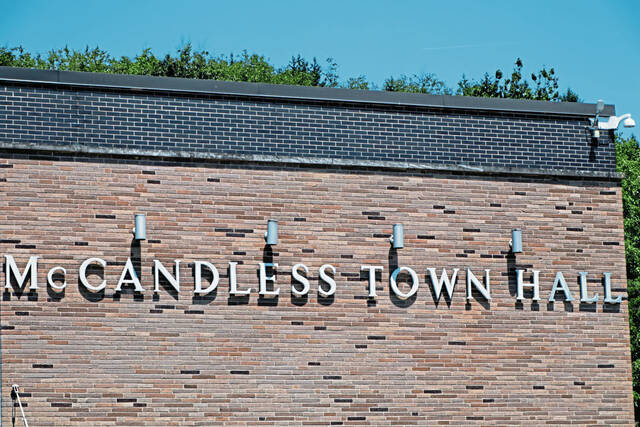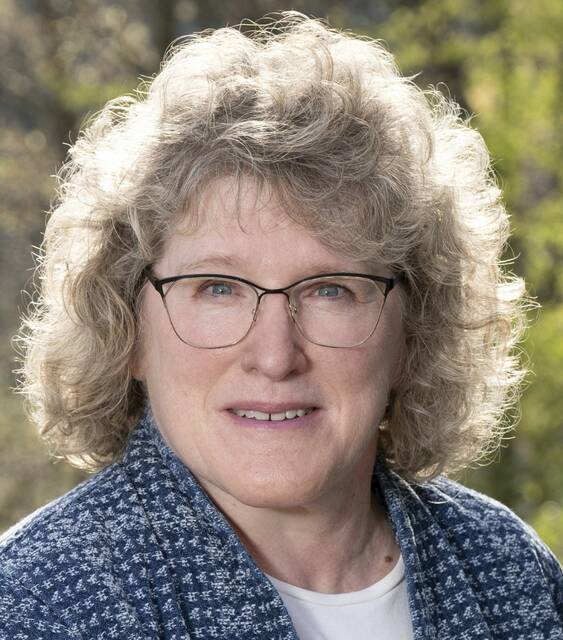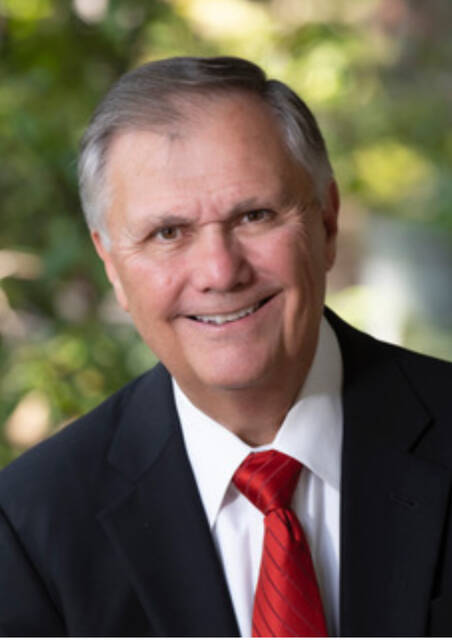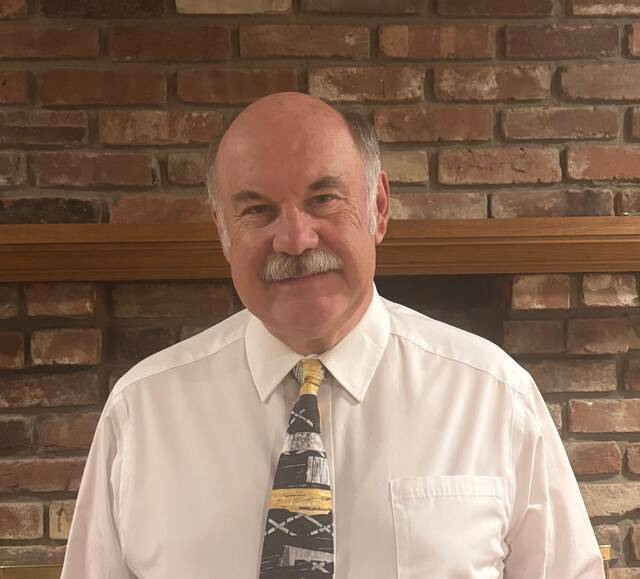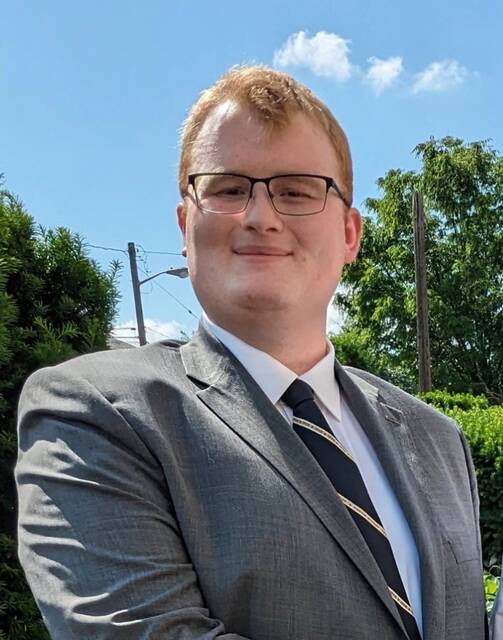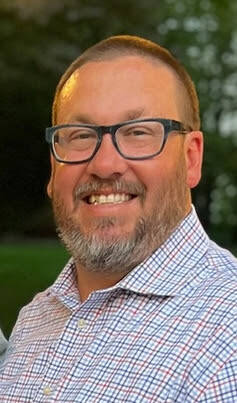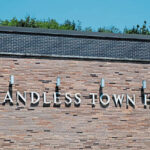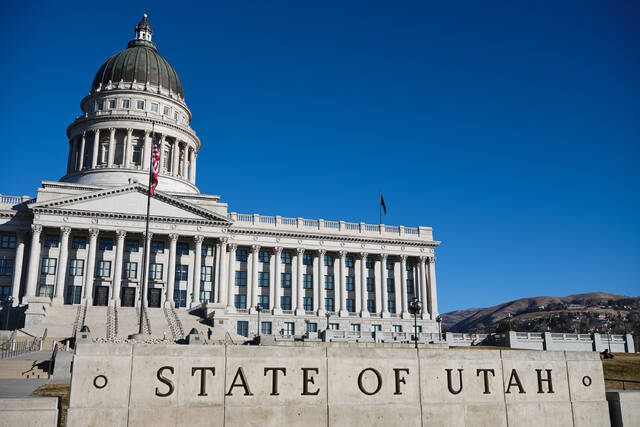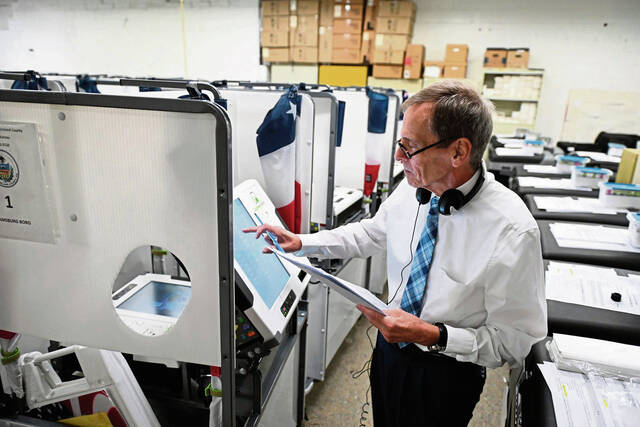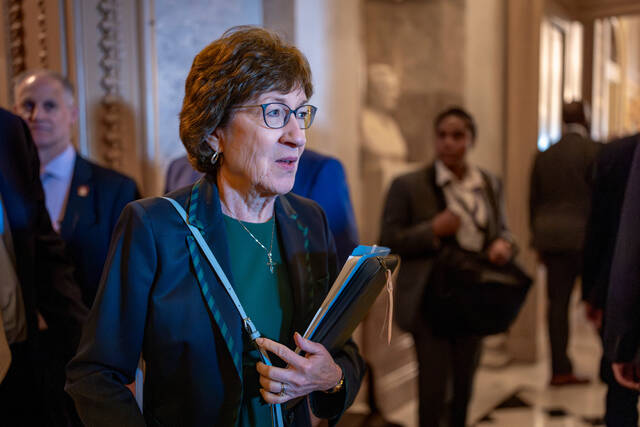Wards 2, 4 and 6 for McCandless Council are up for grabs on Election Day, Nov. 4.
The incumbents, all Republicans, are seeking reelection.
In Ward 2, Laureen Alt is running against incumbent Jack Casey. In Ward 4, Jack Hickerson is squaring off with incumbent Jason Singer. In Ward 6, Nathan Babich is taking on incumbent Don Hart.
The six candidates addressed issues of funding uncertainty, navigating growth and development while preserving open and green space.
The seven-member McCandless Council, representing the community’s seven wards, are elected to four-year terms.
WARD 2
Laureen Alt
Age: 63
Political party: Democrat
Education: Bachelor’s degree in communications from Point Park University
Occupation: Retired postal service manager
Community involvement/volunteer work: Northland Public Library
Years residing in district/municipality: 20
With state funding often limited, how would you balance the need for new projects or services with the responsibility to keep taxes manageable?
With a household budget, family members determine spending based on needs versus wants. The town council must listen to the community and responsibly determine how money is spent. Projects involving a large expenditure of taxpayer money must involve an open process, providing all pertinent information to residents and allowing for discussion and feedback. Active pursuit of state and county grants can provide funding for specific projects.
Periodic reviews of services and purchasing should be performed to determine if shared services or coordination of purchases can result in cost savings. Finally, McCandless needs to promote business growth and investment in a responsible manner and ensure that tax revenue is properly collected.
How should McCandless plan for smart development, especially in regard to the potential of more homes and/or more businesses and the effect on traffic, infrastructure and existing neighborhoods?
Smart development must balance the needs of residents with responsible growth. This could include smaller single-family homes on vacant or underutilized parcels, which would have less impact on infrastructure and could increase home values in the neighborhood. Open green space must be included as per local ordinance, with no exception for developers to buy their way out of this requirement. Green infrastructure can be explored as a way to manage water and protect natural resources.
Currently, the town uses Geographic Information Systems (GIS) mapping, and this technology should be expanded in order to gather data on issues such as traffic monitoring and stormwater management, allowing for short-term solutions and long-term infrastructure planning. GIS mapping also allows the public to view indicators that may concern them and provide feedback to local government.
Jack Casey
Age: 71
Political party: Republican
Education: Earned a bachelor’s degree in business from Duquesne University while working full time on the Conrail Railroad
Occupation: Employed for 23 years with the railroad, which included multiple union positions before being promoted to management. A career change to banking enabled me to keep my family in Pittsburgh.
Community involvement/volunteer work: Served on numerous athletic boards while raising our children; served on a North Allegheny Schools Redistricting Committee; during covid, delivered for 412 Food Rescue and the food bank ; co-founded and a current member of Defenders of Freedom, Pittsburgh, in 2013 which supports the tri-state area’s post-9/11 veterans with TBI, PTSD, financial and medical needs.
Years residing in district/municipality: 42
With state funding often limited, how would you balance the need for new projects or services with the responsibility to keep taxes manageable?
As state funding becomes increasingly constrained, it is paramount that McCandless maintains fiscal responsibility. My objective is to preserve and continuously enhance services. These include road maintenance, snow removal, leaf collection, parks, recreation, ball fields and, most importantly, public safety. I will continue to do so without imposing additional burdens.
This entails establishing clear priorities, pursuing grants and partnerships whenever feasible, and ensuring that every dollar spent generates tangible value for residents.
By meticulously planning new projects and thoroughly reviewing long-term costs before commencement, we will persistently make prudent investments that elevate the town’s quality of life while simultaneously managing tax burdens effectively. Notably, it has been 22 years since McCandless experienced a tax increase.
Fiscal discipline and transparency will remain the cornerstone of every decision. At 1.2360 mills, McCandless holds the second-lowest tax rate in Allegheny County, which I intend to preserve.
How should McCandless plan for smart development, especially in regard to the potential of more homes and/or more businesses and the effect on traffic, infrastructure and existing neighborhoods?
Smart development means thinking ahead, making sure that as McCandless grows, our quality of life grows. New homes and businesses bring opportunity, but they also bring more vehicles and added demand on infrastructure and especially stormwater management.
We need thoughtful planning that balances growth that is in harmony with quality.
This includes coordinating with traffic engineers to improve road flow and safety, ensuring public services can handle future demand, and preserving the character of our established neighborhoods.
By engaging residents early in the planning process and setting clear design while utilizing our new zoning standards, we can encourage development that fits the McCandless vision as spelled out in our Charter, Comprehensive Plan, SALDO and the soon-to-be-published Parks/Trails Plan.
Our goal is not just more growth but the right kind of growth. We need development that strengthens McCandless without straining our roads, services and neighborhoods.
WARD 4
Jack Hickerson
Age: 25
Political party: Democrat
Education: Bachelor’s degree in political science from La Roche University; Community College of Allegheny County; graduate of North Allegheny High School
Occupation: Recovery clerk
Community involvement/volunteer work: Volunteered in multiple La Roche service projects, including volunteering one day a week at Vincentian Home for La Roche service project
Years residing in district/municipality: Nine
With state funding often limited, how would you balance the need for new projects or services with the responsibility to keep taxes manageable?
McCandless provides great services, but maintaining and improving them costs money. We are capable of keeping our finances in order without raising taxes. We must demonstrate strong fiscal responsibility in terms of budgetary planning to make sure that the township is making the most of every dollar spent. We must also work on increasing the tax base in McCandless by using properties that are commercially zoned that are sitting unused right now. We should also continue to look into available grant programs to ensure that we are taking advantage of opportunities for additional funding.
How should McCandless plan for smart development, especially in regard to the potential of more homes and/or more businesses and the effect on traffic, infrastructure and existing neighborhoods?
In McCandless, we have properties that are currently being unused. The advantage to using existing developments is that they are already zoned for commercial use and have nearly all the infrastructure in place to handle a business, so there will be fewer surprises in traffic and environmental effects when developing these new areas. However, we will need to carefully consider traffic and environmental effects so that there are minimal disruptions. We can make McCandless even more economically successful, but that should be in service of making McCandless an even better place to live by reinvesting all increased revenue back into community services and infrastructure.
Jason Singer
Age: 42
Political party: Republican
Education: Bachelor of science degree from Pennsylvania State University
Occupation: President of AOM Consultants – Stormwater Consulting and Construction
Community involvement: Board member of Allegheny County Conservation District, trustee for North Allegheny Foundation, previous chair of the McCandless Environmental Advisory Council, involved in various school sports functions, served on the Town of McCandless Comprehensive Plan Committee, serving on the McCandless 175th Anniversary Committee
Years residing in municipality: 42
With state funding often limited, how would you balance the need for new projects or services with the responsibility to keep taxes manageable?
With state funding often limited, McCandless has to rely on careful planning instead of expecting outside help. Our main tax grows with residents’ incomes, which allows us to keep rates steady if we budget wisely. By focusing on core services like roads, stormwater and public safety, and by seeking grants whenever possible, we can stretch local dollars further. Long-term planning prevents costly emergencies and avoids sudden tax hikes. My goal is to protect families’ wallets while still delivering the services that keep McCandless safe, strong and a great place to raise a family.
How should McCandless plan for smart development, especially in regard to the potential of more homes and/or more businesses and the effect on traffic, infrastructure and existing neighborhoods?
Growth in McCandless is inevitable, but it must be smart and balanced. More homes and businesses mean more traffic, more stormwater and more strain on infrastructure if we don’t plan ahead. I believe in guiding development to the right places, protecting neighborhoods and preserving green space while still welcoming progress. The key is planning first, so issues don’t fall on residents later. Grants and outside funding can cover big costs like roads and utilities, keeping the burden off taxpayers. My focus is keeping McCandless family-friendly, safe and financially stable for years to come.
WARD 6
Nathan Babich
Age: 35
Political party: Democrat
Education: Some college (Seton Hill University and Westmoreland County Community College)
Occupation: Canvassing director
Community involvement/volunteer work: I’ve been knocking on McCandless doors for as long as I’ve lived here, first via the Census Bureau, then a pro-labor group and most recently, politically.
Years residing in district/municipality: Six
With state funding often limited, how would you balance the need for new projects or services with the responsibility to keep taxes manageable?
The taxes generally applied to individuals in McCandless — namely earned income, per capita, real estate and local services — are currently at acceptable rates. I will, however, propose discussion on a potential adjustment to the business privilege tax, specifically a lower year one tax rate for new businesses moving into long empty commercial properties. A reduced first year of tax income is better than no tax income and many small businesses experience losses in their first year. More critically, McCandless’ council must be more active and reliable in both seeking grants to alleviate the taxpayers’ burden and providing desired time-sensitive services. The council chose not to seek a county grant that would have enabled better completion of the 2019 Implementable Comprehensive Plan regarding redevelopment, and more recently “dropped the ball” by failing to oversee the completion of paperwork necessary to continue the township’s deer management program at previous years’ levels.
How should McCandless plan for smart development, especially in regard to the potential of more homes and/or more businesses and the effect on traffic, infrastructure and existing neighborhoods?
Nationwide rising costs increase the difficulty of funding our municipal functions but so, too, do new homes that further strain schools, roads and emergency services. We should be prioritizing the families who already live in McCandless by refocusing our zoning toward commercial developments that provide goods, services and tax revenue to our community while also requiring fewer expenditures. Smart development also requires acknowledging that not all green space is created equal, and thus the current council’s decision to spend $475,000 acquiring difficult-to-access acreage can be viewed as putting the cart before the horse when much of the Implementable Comprehensive Plan that would improve interconnectivity and accessibility to our parks remains unfinished. I aim to more heavily prioritize updating and completing this plan, ensuring we fully use all the resources already available to us.
Don Hart
Age: 64
Political party: Republican
Education: Bachelor’s degree in chemistry from the University of Dayton
Occupation: Product development manager at Atomized Coatings Inc.
Community involvement/volunteer work: Minister of hospitality at St. Sebastian Church, Our Lady of Mt. Carmel Parish. I do volunteer work with the Knights of Columbus. We raise money for charitable causes like St. Anthony’s School for Special Children, McGuire Home, Coats for Kids and Special Olympics. I also work with Alex’s Volunteers. This group works with disabled residents to do maintenance work around their homes. As a McCandless leader, I have volunteered with the Environmental Highway Clean-up Committee, McCandless Community Day, Heritage Center Fundraising and Winterfest. I currently serve as the McCandless Council liaison to the Department of Public Works, McCandless Volunteer Fire Departments and the Heritage and Cultural Center.
Years residing in district/municipality: 27 years in the Sixth Ward of McCandless; 55 years in McCandless
With state funding often limited, how would you balance the need for new projects or services with the responsibility to keep taxes manageable?
I am proud of the fact that we have not raised tax rates in the Town of McCandless with many residents struggling with an economic slowdown and fixed incomes. State funding has been somewhat erratic with budgets not being passed on time. If we can limit the increases in the town’s budgets, we will not be dependent on the whims of state politics. Hopefully, the state will be able to solve the budget impasse so that state grants that our town, the fire departments, the ambulance authority and other local entities can be funded with capital investment grants for specific equipment and projects.
How should McCandless plan for smart development, especially in regard to the potential of more homes and/or more businesses and the effect on traffic, infrastructure and existing neighborhoods?
McCandless is fortunate to have North Park taking up almost 15% of the town’s land. The undeveloped property that remains will include plans for “greenspace” and sidewalks where possible. Town roads will need to be upgraded where traffic volume merits. Unfortunately, many of the main roads in McCandless are state and county roads so we will need to work with our state and county representatives to get many of the upgrades. McCandless has recently received a grant to study our McCandless local parks, and I look forward to expanding our trails and recreation in our underutilized local parks. We have recently added many pieces of sidewalk stretching from McKnight Road near the old Rave Cinemas to past the ambulance authority on Ingomar Road near North Park. Plans are to finish these sidewalks to connect to North Park in 2026. This is an example of the kinds of infrastructure improvements that help improve the quality of life in McCandless.


